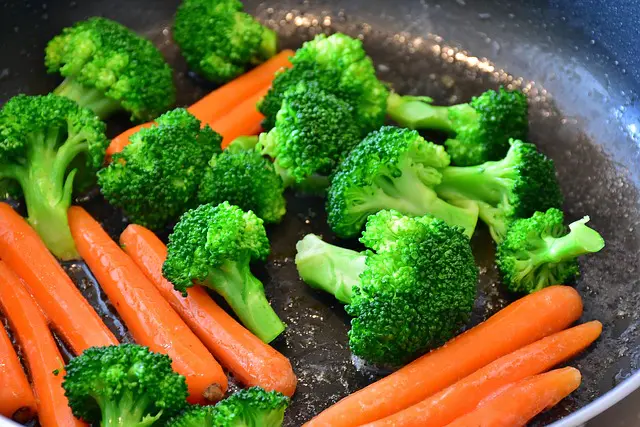From Thanksgiving to New Year's, it's common for people to gain about a pound, a seemingly small price to pay for the pleasure of holiday treats. However, losing this weight after the festivities can be challenging, and the weight gain can accumulate over the years, leading to a significant increase. To avoid this, controlling portion sizes is crucial, but it's not always easy to do without feeling like you're missing out on the feast.
Grasp Basic Portion Guidelines
When setting up your meal, divide your plate into two main parts: one for non-starchy vegetables and the other for protein and complex carbs. Aim for a protein portion about the size of your palm and a carb serving no larger than a clenched fist. Start with vegetables, then protein, and finally carbs, which will help you fill up before reaching for the carbs, making portion control simpler.
Plate Up for Portion Control
Eating directly from takeout containers can lead to overeating as it distorts your sense of how much you're consuming. Instead, serve one serving onto a plate and eat that before considering more. This often results in feeling satisfied with just one serving, allowing you to save the rest for later.
Choose Smaller, Darker Plates for Visual Tricks
Studies show that larger plates can increase food intake by up to 50%, as our brains judge portion sizes relative to the plate size. Food on darker plates stands out more, creating the illusion of larger portions and potentially reducing intake.
Selective Eating to Satisfy Cravings
At a dinner party, limit yourself to four treats you truly want and ignore the rest. Opt for the smallest amount that will satisfy your cravings, which is often less than a standard serving size.
The Two-Thirds Rule for Overeaters
If you're prone to overeating, try eating only two-thirds of your meal and save the last third for later. By the time your next meal comes, you might not feel the need to go back to your leftovers.
Mindful Eating Even with Healthier Options
Even healthy foods can lead to overeating if consumed excessively. Remember, most foods maintain their benefits when eaten in moderation. A 'low-fat' dessert might only be 25% less fatty than the full-fat version, so two servings of the low-fat version can be worse than one of the full-fat.
Portion control is essential for healthy eating and weight management. Adjusting to smaller portions after being used to larger ones can be tough, but using strategies like smaller plates, saving part of your meal, and filling half your plate with vegetables can help prevent overeating. These tactics allow you to enjoy the holiday season and still fit into your clothes come the next Christmas.
Recent
See All2025-03-09
Maximize Your Fitness Routine in Minimal Time
2025-03-09
Strategic Portion Management for Holiday Feasts
2025-03-09
Embrace a Plant-Based Diet for Enhanced Health and Longevity
2025-03-09
Temporarily Toss Aside the Scale!
2025-03-09
Embrace Vegetarianism for a Healthier and Longer Life
2025-03-09
Embrace a Diet-Free Lifestyle for Everlasting Health!
2025-03-09
Harness the Power of Physical Therapy to Alleviate Pain
2025-03-09
Welcome to the Era of Health Tech!
2025-03-09
Unveiling the Illusion of Healthy Foods
2025-03-09
Transform Your Fitness Routine with High Intensity Interval Training!
Newsletter
Get life tips delivered directly to your inbox!












